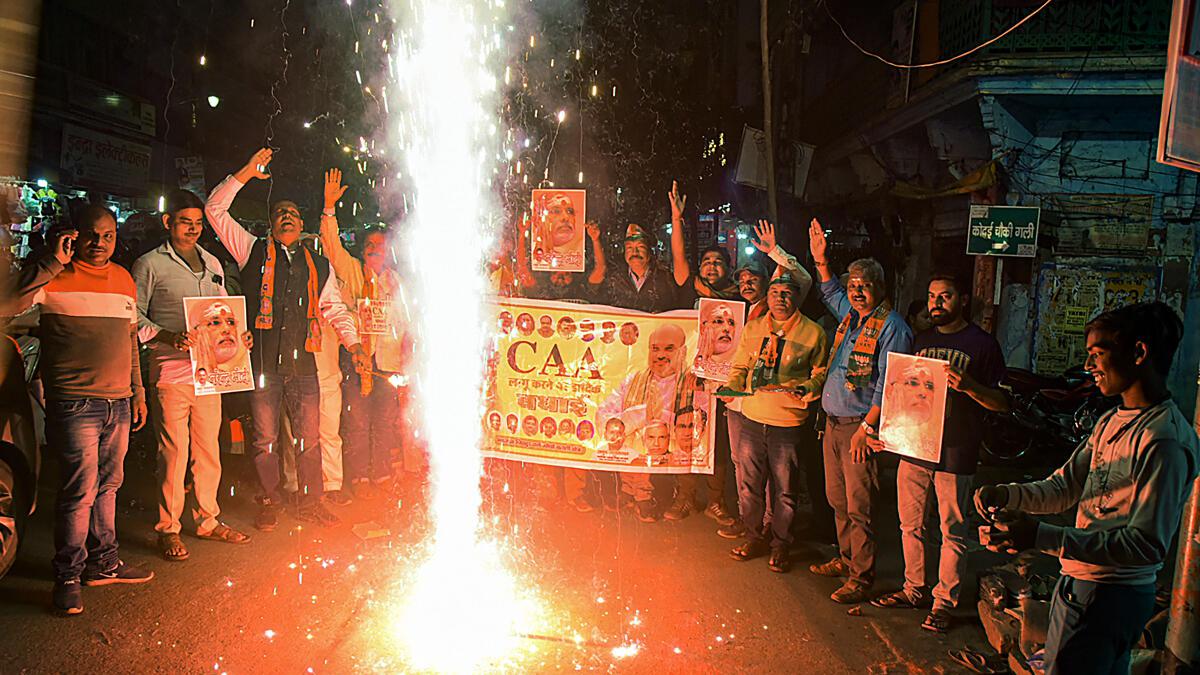The Ministry of Home Affairs (MHA) notified the Citizenship Amendment Rules, 2024 just before the general elections, facilitating the implementation of the Citizenship Amendment Act (CAA) passed in 2019.
Purpose of the Citizenship Amendment Act (CAA):
The CAA aims to grant citizenship to undocumented individuals from Hindu, Sikh, Buddhist, Parsi, Christian, and Jain communities from Pakistan, Bangladesh, and Afghanistan.
Requirements for Citizenship Application:
- Applicants must provide six types of documents.
- They must specify their “date of entry” into India.
- An “eligibility certificate” from a locally reputed community institution is required, confirming their religious identity.
Application Process:
- Applicants must register on the portal https://indiancitizenshiponline.nic.in or via the mobile application CAA-2019.
- All documents and photographs are to be uploaded online.
- Applications undergo a background check by security agencies.
Scrutiny Committees:
- An empowered committee, led by the Director (Census Operations) in each State, scrutinizes applications.
- District-level committees, headed by Senior Superintendent or Superintendent of Post, assist in the scrutiny process.
Documentary Evidence:
- Applicants must provide evidence of their parents’ date of birth.
- Documents proving entry into India before December 31, 2014, are required.
Exemptions and Provisions:
- CAA exempts members of specified communities from certain criminal cases under Foreigners Act, 1946, and Passport Act, 1920.
- Applicants must appear in person to subscribe the application and take an oath of allegiance.
- Naturalization applicants must submit affidavits verifying their statements and character references from Indian citizens.
Criteria for Naturalization:
- Applicants must declare adequate knowledge of one language specified in the Eighth Schedule to the Constitution.
- Indian citizenship can be acquired by birth, descent, registration, naturalization, or incorporation of territory.
Exemptions under CAA:
- Most parts of the northeast, including tribal areas of Assam, Meghalaya, Mizoram, or Tripura, and certain states like Arunachal Pradesh, Mizoram, Nagaland, and Manipur, are exempted from CAA provisions.
Government Process:
- The Home Ministry had multiple extensions to frame the rules.
Multiple Choice Questions (MCQs):
- When was the Citizenship Amendment Act (CAA) passed by the Parliament?
a) December 10, 2019
b) December 11, 2019
c) December 12, 2019
d) December 13, 2019
Answer: b) December 11, 2019 - Which communities are eligible for citizenship under the CAA?
a) Hindu, Muslim, Buddhist
b) Hindu, Sikh, Buddhist, Parsi, Christian, Jain
c) Hindu, Muslim, Christian, Sikh
d) Hindu, Muslim, Buddhist, Parsi
Answer: b) Hindu, Sikh, Buddhist, Parsi, Christian, Jain - Where can applicants register for citizenship under the CAA?
a) Government office
b) Post office
c) Online portal
d) Embassy
Answer: c) Online portal - Who scrutinizes the citizenship applications?
a) Local police
b) Empowered committee
c) Political party representatives
d) Religious leaders
Answer: b) Empowered committee - What is the cut-off date for proving entry into India under the CAA?
a) December 31, 2013
b) December 31, 2014
c) December 31, 2015
d) December 31, 2016
Answer: b) December 31, 2014
